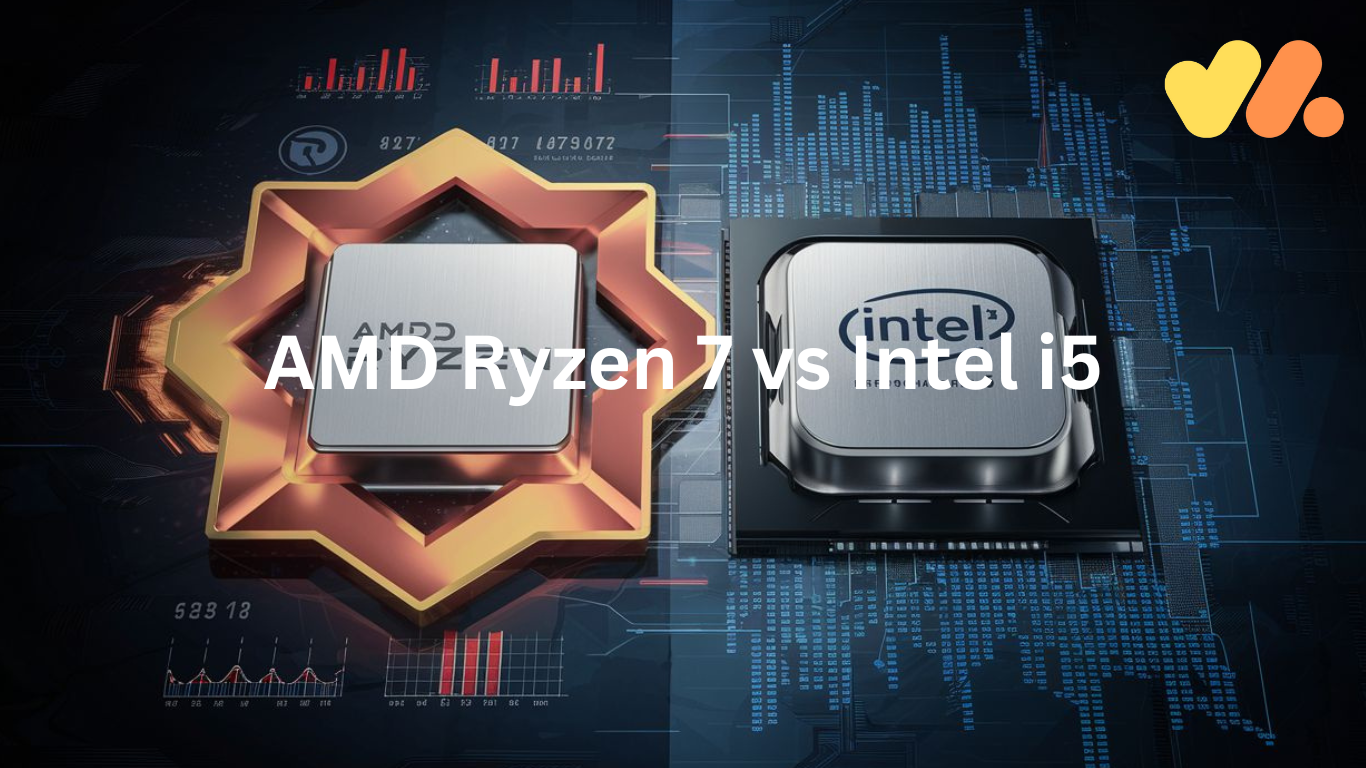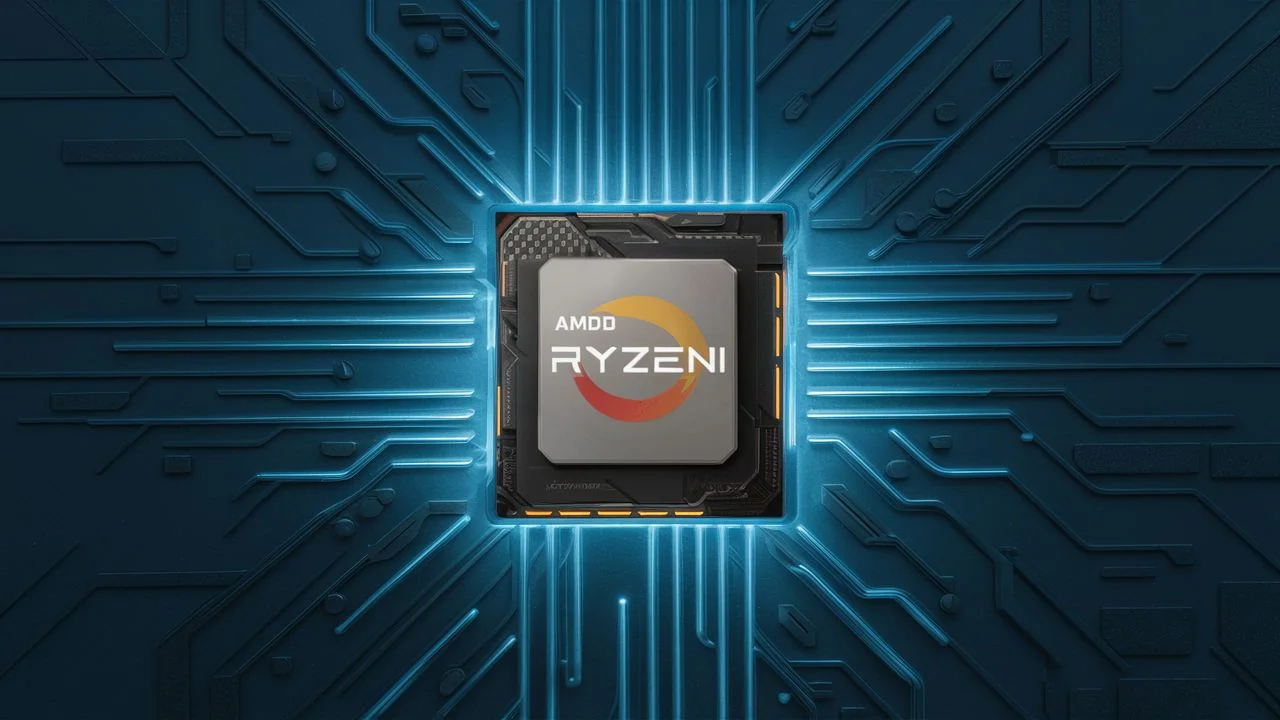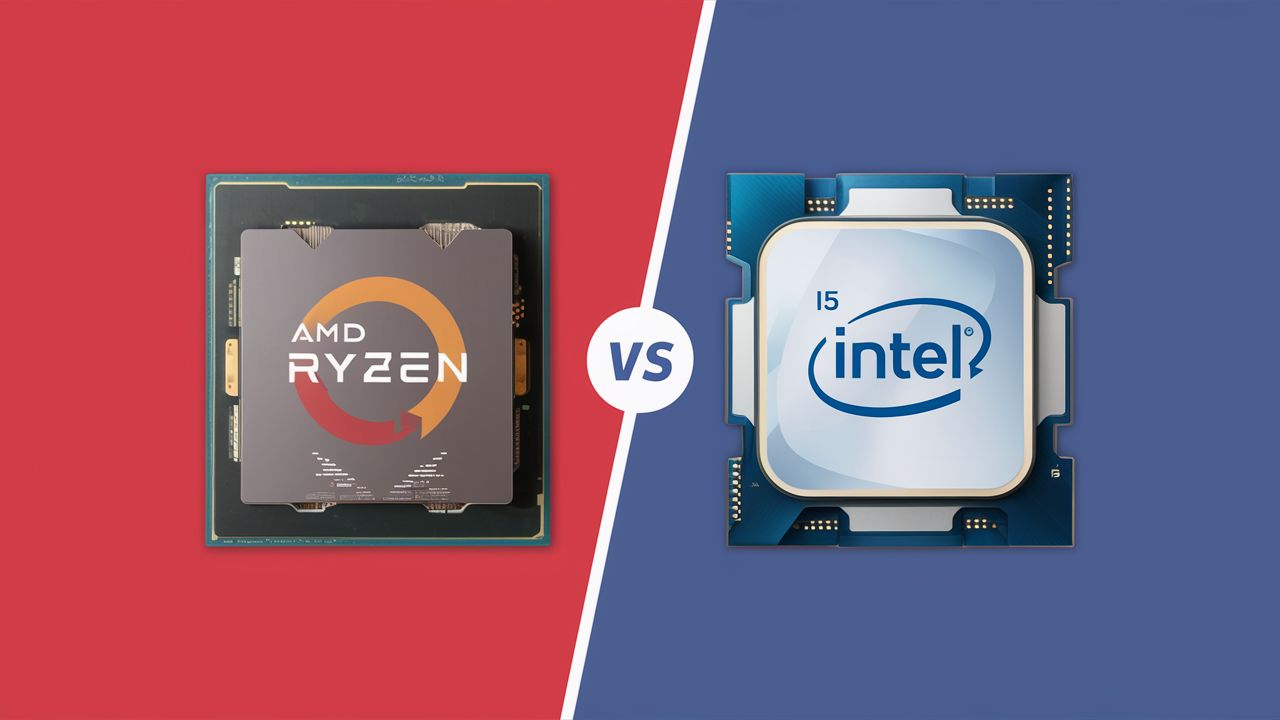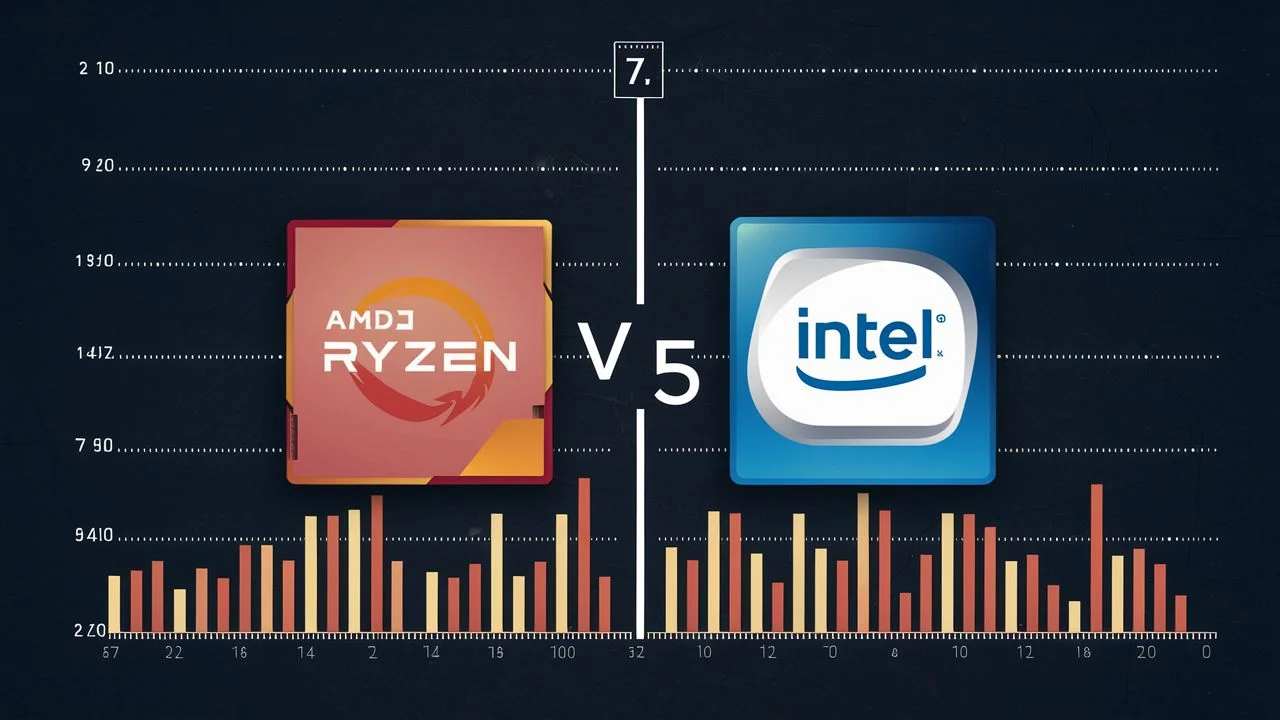AMD Ryzen 7 vs Intel i5: A Comprehensive Comparison

When choosing a processor for your computer, many consumers face the battle between AMD Ryzen and Intel Core. Among these options, the AMD Ryzen 7 and Intel i5 are popular choices in the mid-range segment. Whether you’re a gamer, content creator, or everyday user, the decision between these two powerhouses can significantly impact your computing experience. This article delves into a detailed comparison of the AMD Ryzen 7 and Intel i5 processors, examining their performance, features, and suitability for different tasks.
Table of Contents

AMD Ryzen 7 vs Intel i5 CPUs
AMD Ryzen 7 Series
AMD’s Ryzen 7 series is part of the brand’s lineup of high-performance processors designed for enthusiasts and professionals. Built on the Zen architecture, Ryzen 7 CPUs offer a compelling mix of multi-core performance, efficiency, and affordability. These processors often come equipped with more cores and threads than their Intel counterparts at similar price points, making them ideal for multitasking, content creation, and productivity-focused workloads
Intel Core i5 Series
On the other hand, Intel’s Core i5 series has long been a go-to option for users seeking a balance of performance and cost-effectiveness. Positioned as a mid-range offering, the i5 CPUs are known for their single-core solid performance, making them excellent for gaming, general computing tasks, and moderate content creation. While historically offering fewer cores than AMD’s Ryzen 7 series, Intel’s optimization and efficiency have made the i5 processors popular among many users.

Performance Comparison AMD Ryzen 7 vs Intel i5: A Comprehensive Comparison
Multi-Core Performance
One of AMD’s primary advantages is its robust multi-core performance. With higher core counts across the lineup, Ryzen 7 CPUs excel in tasks that benefit from parallel processing, such as video rendering, 3D modelling, and streaming. The Ryzen 7 5800X, for example, boasts eight cores and 16 threads, offering impressive performance in heavily threaded applications.
Single-Core Performance
Intel’s Core i5 processors showcase exceptional single-core performance, particularly in the latest generations. This strength makes them well-suited for tasks with crucial per-core speed, such as gaming and everyday computing. Games, in particular, often rely more on single-core performance than multiple cores, giving Intel an edge in many gaming scenarios.
Gaming Performance
Regarding gaming, AMD Ryzen 7 and Intel i5 processors deliver excellent performance, albeit with slightly different strengths. Intel’s i5 CPUs, especially with high clock speeds and strong single-core performance, provide smooth gameplay experiences in most titles. However, AMD’s Ryzen 7 series, with its increased core and thread counts, shines in games that can effectively leverage multiple cores, such as open-world titles and those with complex physics engines.
Content Creation and Productivity
For tasks like video editing, 3D rendering, and multitasking, the AMD Ryzen 7 series often has the upper hand due to its higher core and thread counts. These processors can easily handle demanding workloads, allowing content creators to edit videos, render animations, and compile code efficiently. The Ryzen 7 CPUs are particularly popular among professionals who require workstation-like performance without the hefty price tag.
Power Efficiency and Heat Management
AMD’s Ryzen 7 processors have made significant strides in power efficiency with each new generation. The 7nm Zen architecture, seen in models like the Ryzen 7 5800X, offers impressive performance per watt, resulting in more relaxed and quieter operation. Intel’s i5 processors, while competitive, may run slightly warmer under heavy loads, especially in older architectures. However, Intel has also improved recently, with its 10th and 11th Gen CPUs offering better efficiency and thermal performance.
Features and Technologies
Overclocking
AMD Ryzen 7 and Intel i5 processors support overclocking, allowing users to push their CPUs beyond stock speeds for increased performance. AMD’s Ryzen CPUs have historically been more overclocking-friendly, with unlocked multipliers across most of the lineup. Intel’s i5 processors also support overclocking, although the degree to which you can overclock may vary between models.
Integrated Graphics
Intel’s Core i5 processors often come with integrated graphics solutions, such as Intel UHD Graphics or Intel Iris Xe Graphics. These integrated GPUs provide basic display capabilities and can handle light gaming and multimedia tasks without a dedicated graphics card. AMD’s Ryzen 7 series CPUs do not feature integrated graphics, requiring a dedicated GPU for display output.
PCIe 4.0 Support
AMD Ryzen 7 processors, based on the Zen 2 and Zen 3 architectures, offer PCIe 4.0 support. This enables faster data transfer rates to compatible PCIe 4.0 SSDs and GPUs, resulting in snappier system responsiveness and improved gaming performance. Intel’s i5 CPUs, as of the latest generations, still primarily support PCIe 3.0, although this is likely to change with future releases.
Pricing and Value
Regarding pricing, AMD Ryzen 7 processors often provide better value for money due to their higher core counts and competitive performance. Users looking for workstation-like capabilities without breaking the bank will find Ryzen 7 CPUs appealing. On the other hand, Intel’s Core i5 series remains competitive in pricing, especially for users focused on gaming and everyday computing tasks.
Conclusion
In the perennial battle between AMD Ryzen 7 and Intel i5 processors, both offer compelling choices tailored to different user needs. AMD’s Ryzen 7 series shines in multi-core performance, making them ideal for content creation, multitasking, and productivity-focused workloads. Intel’s Core i5 processors, known for their single-core solid performance, excel in gaming and everyday computing tasks.
Ultimately, the choice between AMD Ryzen 7 and Intel i5 comes down to your specific requirements and budget. If you prioritize multi-threaded performance, efficient multitasking, and value-packed offerings, AMD Ryzen 7 processors are a fantastic choice. On the other hand, if you are primarily a gamer seeking top-notch single-core performance and reliable gaming experiences, Intel’s Core i5 series remains a solid contender.
Before deciding, consider the types of tasks you’ll be performing most frequently, whether gaming, content creation, office work, or a mix of everything. AMD and Intel continue to innovate with each new generation, ensuring consumers have excellent options to suit their computing needs.
In the end, whether you opt for the AMD Ryzen 7 or Intel i5, rest assured that you’ll get a powerful processor capable of handling today’s demanding applications and games with finesse.
Remember: When in doubt, it’s always a good idea to check benchmark comparisons, reviews, and user feedback to make an informed decision that aligns with your specific requirements.
So, which side of the AMD Ryzen 7 vs Intel i5 debate do you lean towards? The choice is yours!
This article compares AMD Ryzen 7 and Intel i5 processors, exploring their performance, features, and suitability for different tasks. From multi-core performance to gaming prowess, it aims to assist readers in making an informed decision when choosing between these two popular CPU options.





One Comment